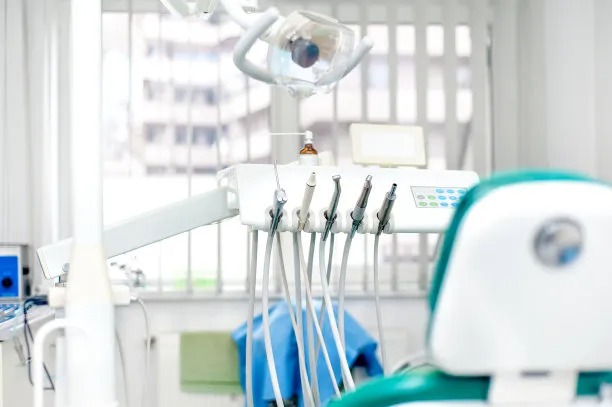Summary: Planning for dental implantation is a crucial step to ensure optimal recovery and long-lasting results. This article outlines essential precautions that should be taken into account before undergoing the procedure. By focusing on pre-operative consultations, lifestyle modifications, meticulous oral hygiene, and emotional preparedness, individuals can enhance their chances of a successful recovery. Each section elaborates on key considerations, providing readers with a comprehensive understanding of what to expect and how to best prepare themselves. Following the recommendations outlined here will facilitate not only a smoother healing process but also contribute to the longevity of the dental implants.
1. Pre-operative Consultations Are Critical

Before deciding to undergo dental implantation, it is essential to engage in thorough pre-operative consultations with your dentist. Such consultations allow for a comprehensive assessment of your dental health and any underlying conditions that may affect the procedure. During this stage, discussing your medical history, allergies, and current medications is vital, as these factors may influence both the surgery and recovery.
Additionally, your dentist will likely conduct imaging studies like X-rays or 3D scans to evaluate the structure of your jawbone. This step is crucial because inadequate bone density may require you to undergo bone grafting, which adds another layer to the implantation process. By addressing these issues early, both you and your dentist can ensure a more tailored treatment plan.
Lastly, don’t hesitate to ask your dentist any questions regarding the procedure, potential risks, and expected outcomes. A clear understanding will not only ease your anxiety but also enable you to provide informed consent, paving the way for a seamless experience.
2. Lifestyle Modifications for Improved Healing
Lifestyle modifications play a pivotal role in ensuring successful recovery post-implantation. One of the most effective changes involves quitting smoking, as tobacco use significantly hampers the healing process. Nicotine restricts blood flow, which can delay recovery and even lead to implant failure. If youre a smoker, it’s crucial to commit to quitting at least a few weeks before and after the procedure.
Alongside quitting smoking, maintain a nutritious diet rich in vitamins and minerals to bolster your body’s healing capabilities. Foods high in calcium and vitamin D, such as dairy products and leafy greens, contribute to strong bones and teeth, which are essential for implant stability. Hydration is equally important; drinking sufficient amounts of water aids in recovery by keeping tissues healthy and promoting efficient healing.
Furthermore, managing stress levels can greatly influence recovery. High stress can lead to elevated cortisol levels, which might impede your body’s healing mechanisms. Incorporate relaxation techniques into your routine, such as yoga or meditation, to foster a positive mindset and facilitate a smoother recovery journey.
3. Meticulous Oral Hygiene Practices
Maintaining impeccable oral hygiene is another essential precaution to consider before undergoing dental implantation. Before the procedure, it is vital to get rid of any existing dental issues such as gum disease or cavities. Neglecting these conditions can set you up for complications post-implantation, making it essential to follow your dentist’s advice on preparing your mouth.
After implantation, following a rigorous oral hygiene routine is crucial. This includes regular brushing and flossing, as well as using an antibacterial mouthwash to minimize the risk of infection. Maintaining clean and healthy gums may significantly contribute to the success of the implants and their ability to integrate with the bone.
It’s also wise to schedule regular follow-up appointments with your dentist to monitor your dental health post-implantation. These visits allow for professional cleanings and necessary adjustments or treatments to ensure your oral health remains optimal, paving the way for a lasting result.
4. Emotional Preparedness for the Procedure
Emotional preparedness is a key factor that is often overlooked when considering dental implantation. Getting ready for such a procedure can create anxiety, which may hinder the recovery process. Thus, it is beneficial to allow yourself to process these emotions beforehand. Engaging with supportive family members or friends can help you articulate your fears and anxieties, making the experience more manageable.
Additionally, consider visualizing the successful outcome of your dental implantation. Positive visualization techniques are powerful tools that can cultivate a sense of calm and reduce apprehension. Understanding that the procedure itself is commonly performed and entails a high success rate can help shift your perspective towards a more positive outlook.
Finally, consult your dentist about any sedative options available to help ease your anxiety during the procedure. Feeling relaxed can lead to a more efficient process, thus setting the foundation for better recovery and results.
Summary:
In conclusion, preparing for dental implantation involves careful consideration of several essential precautions. From thorough pre-operative consultations to necessary lifestyle modifications, maintaining superior oral hygiene, and being emotionally prepared, all play critical roles in determining the outcome of the procedure. Emphasizing these factors can significantly enhance both recovery experiences and the longevity of your dental implants, ultimately contributing to better oral health.
This article is compiled by Vickong Dental and the content is for reference only.
Vickong Dental
Vickong Dental is a large medical group established in Hong Kong in 2008 by professors from well-known medical universities in Guangdong and Hong Kong, as well as medical doctors from key national '985' universities (including Master's supervisors and senior professors). The chain of branches brings together expert dentists with PhDs and Master's degrees from Hong Kong and Mainland China, committed to providing high-quality dental treatment.
"Vickong Dental Practices the University Motto of 'Healing and Serving Society,' with a Stable Operation for Sixteen Years. It Has Been honored with Hong Kong Enterprise Leaders's Choice,' and is a Global Trusted Implant Center for the Nobel Implant System. Recommended by Hong Kong Metro Broadcast and Guangdong Television, it Serves Customers from Over Thirty Countries and Regions, Gaining the Trust and Favor of Citizens from the Guangdong-Hong Kong-Macau Greater Bay Area and Surrounding Cities.

Thousands of customers' unanimous praise
The most recognized and highly recommended dental service by customers in the Guangdong-Hong Kong-Macau Greater Bay Area
We Ensure You Receive Detailed Care and Attention Here
Hong Kong standards, Shenzhen prices, Your Trusted English-speaking dentists

Vickong Dental Medical-Grade Instrument Disinfection Process
Vickong Dental Medical-Grade Instrument Disinfection Process

Vickong Dental Chain: A Warm and Comfortable Environment for Treatment






Appointment Hours

Q&A
Why choose Vickong Dental?
Vickong Dental practices the university motto 「Medicine to Benefit Society」, with each branch bringing together highly qualified dentists with doctoral and master’s degrees from Hong Kong and the Mainland, and has maintained seventeen years of steady operation。Recipient of 「2024 Hong Kong Enterprise Leaders Brand」, 「2025 Hong Kong Enterprise Leaders Brand」, a Nobel Biocare Global Trusted Implant Center, and a brand recommended by Metro Radio Hong Kong and Guangdong TV。
To date, we have served customers from more than thirty countries and regions,earning exceptionally high word-of-mouth recognition and trusted recommendations from residents across the Guangdong-Hong Kong-Macao Greater Bay Area and surrounding cities
We have eight major branches in Zhuhai、Shenzhen,and a consultation and service assurance center in Hong Kong,so you can book a free consultation at any time for any questions,which is very reassuring.
If I do not accept the quotation after the CT scan, will I be charged??
No! As long as the actual treatment has not started, you will not be charged any fees.
Will there be any additional charges during the treatment process?
No, there won’t be any additional charges. Before treatment begins, we will clearly explain the treatment plan and its corresponding fees. Only after the patient agrees and signs the consent form will we proceed with the dental service.
Can I pay in Hong Kong dollars?
Yes. Vickong Dental accepts payment in Hong Kong dollars. The amount will be converted based on the exchange rate of the day, and the applicable rate will be clearly communicated to you in advance.
Can I reschedule my appointment at any time?
Yes. Please contact us via **WeChat** or **WhatsApp** as early as possible, providing your original appointment time and details, along with your preferred new date and time slot for rescheduling.













